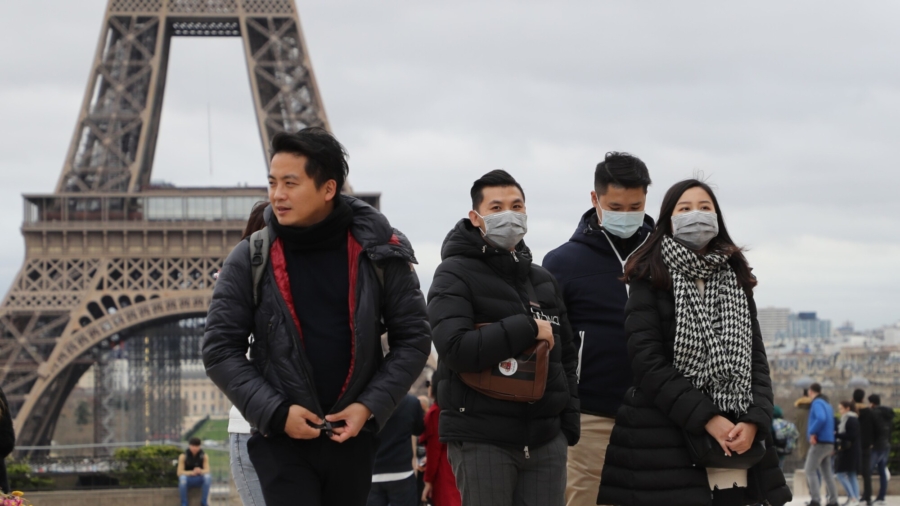France, Greece, and Portugal became the latest European countries to relax COVID-19-related restrictions, with the three nations easing travel restrictions.
For example, vaccinated tourists won’t have to provide a negative COVID-19 test to enter, although unvaccinated people will. Greece also dropped pre-departure requirements for testing.
French officials this week announced the country would drop a requirement of a negative COVID-19 test for vaccinated people from outside the European Union.
“We again required tests in December over the Omicron variant. In the coming days we will announce that tests are no longer needed for vaccinated people,” Clement Beaune, with the Ministry of Europe and Foreign Affairs, told France 2 TV on Tuesday.
The further relaxation of rules comes as Sweden, Norway, Denmark, the United Kingdom, Ireland, and the Czech Republic have dropped domestic COVID-19 rules, including vaccine passports in some cases.
Earlier this month, Finnish Prime Minister Sanna Marin announced the country will be lifting all COVID-19 restrictions by mid-February.
Marin said the lifting of restrictions should be done in a gradual manner, arguing the COVID-19 pandemic is still placing a “relatively high burden” on hospital resources. “That’s why I want that we give them up as soon as possible,” said during an event with reporters, as reported by the Helsinki Times.
“No one can know what will happen next December. But we promised the citizens of Denmark that we will only have restrictions if they are truly necessary and we’ll lift them as soon as we can,” Denmark Health Minister Magnus Heunicke told CNN in late January. “That’s what’s happening right now.”
COVID-19 vaccine passports for restaurants, bars, and other venues, as well as indoor mask mandates, are ending across the Nordic country, he added. Denmark was the first European Union nation to lift all restrictions on Sept. 10.
Earlier in January, UK Prime Minister Boris Johnson announced the end of some COVID-19-related restrictions in England such as passports, mask mandates, and work restrictions. The governments in Scotland and Wales also announced at the time the removal of certain Omicron curbs, although mandatory indoor mask-wearing and COVID passes will remain in place.
Days later, the Republic of Ireland’s leadership announced COVID-19 certificates, social distancing, capacity limits, and curfews.
Taoiseach Micheal Martin remarked: “Humans are social beings and we Irish are more social than most. As we look forward to this spring, we need to see each other again. We need to see each other smile. We need to sing again.”
On Jan. 20, Spanish Prime Minister Pedro Sánchez told reporters that the European Union should approach COVID-19 in the same manner that it approaches influenza, as frequent studies and data have shown the Omicron variant is far less virulent than previous variants.
“What we are saying is that in the next few months and years, we are going to have to think, without hesitancy and according to what science tells us, how to manage the pandemic with different parameters,” he said on Jan. 17, according to The Associated Press.
But in Austria, President Alexander Van der Bellen last week signed a controversial law introducing a national COVID-19 vaccine mandate for adults that includes fines. Those without proof of vaccination or exemption face an initial fine of 600 euros ($680) and additional fines up to 3,600 euros ($4,100). Individuals can be fined up to four times per year, and the law will last until January 2024.
From The Epoch Times

